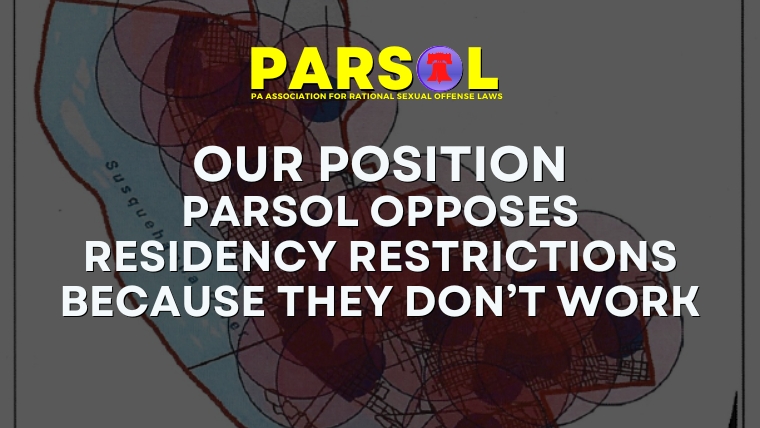Pennsylvania has no laws about where an individual may live. Furthermore, PARSOL opposes the blanket use of residency restrictions and applauds the Supreme Court of Pennsylvania decision in Fross v. Allegheny County, found that an ordinance prohibiting persons with crimes of a sexual nature from living within 2,500 feet of certain locations conflicted with state law by impeding the objectives of the Parole and Sentencing Codes, which aim to rehabilitate and reintegrate offenders. The state laws provide a detailed scheme for managing “sex offenders”, including registration under Pennsylvania Megan’s Law, community notification for Sexually Violent Predators, and mandatory treatment and counseling programs, without imposing blanket residency restrictions. The court emphasized that rehabilitation and reintegration depend on stable environments, close to family, employment, and treatment options. The ordinance undermined this by forcing offenders into isolated areas, potentially without necessary resources.
In a September 2023 hearing, the PA House Judiciary Committee received testimony from PARSOL, the ACLU of Pennsylvania, Joseph J. Peters Institute (Philadelphia), the Pennsylvania District Attorneys Association, and the Pennsylvania Commission on Sentencing. They all opposed residency restrictions, citing that they don’t work, would be a logistical nightmare, increase homelessness and transience, and reduce employment opportunities.
September 12, 2023 Pennsylvania House Judiciary Hearing on Residency Restrictions
Related News Articles
- The Harrisburg-based Patriot News covered the hearing in their daily edition on 9/13. You can read the story here.
- The Capital Star also covered the hearing covered the hearing on their web edition on 9/13. You can read their coverage here.
